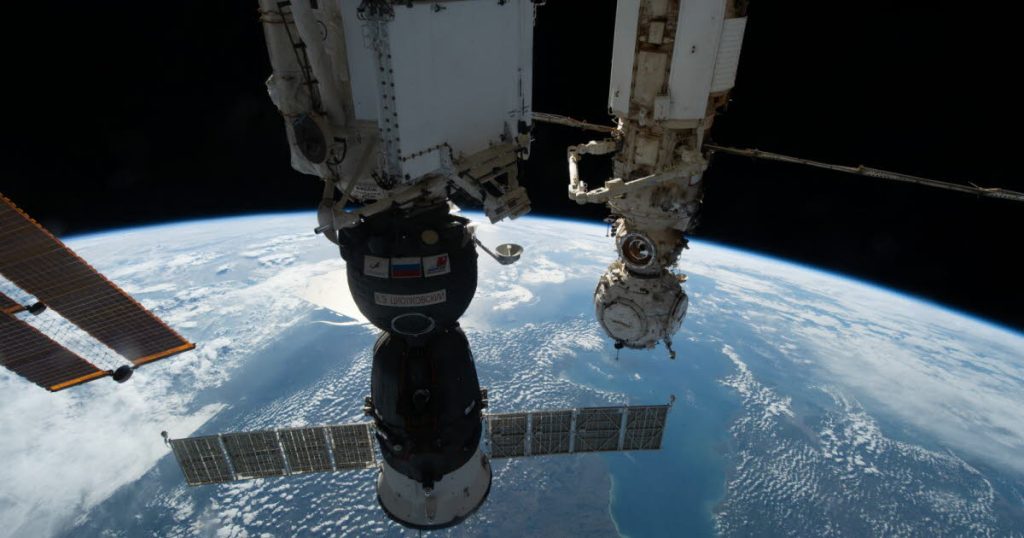
The Russian Space Agency admits a “slight” rise in temperature
On Friday, the Russian space agency Roscosmos admitted a “slight” rise in temperature aboard a spacecraft docking with the International Space Station (ISS), according to the agency, two days after a leak occurred, possibly due to the impact of a small meteor.
According to Roscosmos, “a number of tests” were carried out on the Soyuz MS-22 spacecraft, “including measuring the temperature in the spacecraft’s living space.” The Russian Space Agency said on Telegram that it was now 30 degrees Celsius. “This is a slight temperature change,” Roscosmos went on to say, claiming that this situation is “not critical for the operation of the equipment and the comfort of the station crew.”
But the challenge lies in determining whether the spacecraft will still be able to return to Earth two Russian cosmonauts and their American colleague Frank Rubio, whose mission is scheduled to end in March 2023.
NASA wants to be reassuring, but it remains suspicious
Roscosmos said the temperature in the spacecraft is currently maintained “by the Russian part of the International Space Station.” The Soyuz MS-22 leak came on Wednesday when Russian cosmonauts Sergei Prokopyev and Dmitry Petlin were preparing for a spacewalk, which was eventually cancelled.
The source of the leak has been determined to be coming from the Soyuz cooling system, and the fluid is supposed to be coolant.
Pictures broadcast by the US space agency clearly showed a jet of white particles leaking abundantly into space from the ship. Most of the liquid “leaked out” by Thursday, NASA said on Friday.
The US agency also reassured: “The temperatures and humidity inside the Soyuz spacecraft (…) are within acceptable limits.” According to NASA, a “successful” test of the spacecraft’s engines took place on Friday, but other verifications are still ongoing.
Pictures scheduled for Monday
NASA said a spacewalk scheduled for Monday has been pushed back to Wednesday to allow the station’s Canadian robotic arm to be used to “provide more exterior images of Soyuz on Sunday.”
In addition to the crew that arrived on the Soyuz spacecraft, there are currently four more people on the ISS: Russian Anna Kikina, Americans Nicole Mann and Josh Kasada, and Japanese Koichi Wakata. They traveled with an American spacecraft from SpaceX.
The International Space Station is one of the few areas of cooperation still underway between Moscow and Washington since Russia’s attack on Ukraine, launched on February 24, and ensuing Western sanctions.

“Organizer. Social media geek. General communicator. Bacon scholar. Proud pop culture trailblazer.”
